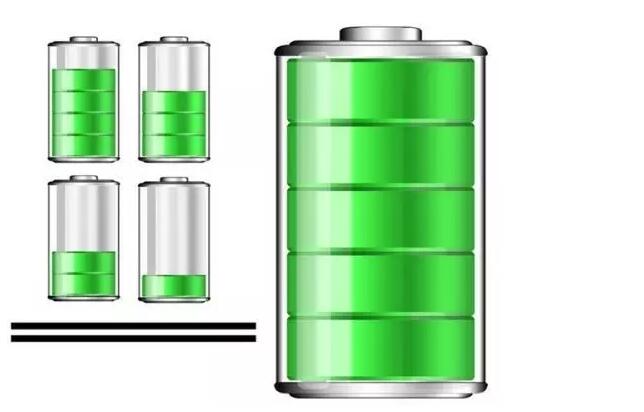When to charge a Li-ion battery?
Oct 21, 2019 Pageview:1417
When should I charge my lithium-ion battery?
Unlike the common belief, you do not have to fully discharge then charge your new Li-ion battery. Lithium-ion batteries have a specific maximum capacity that is available from the first moment you use them. So, when you buy a new Li-ion battery all you need to do is to top up its charge then start using it immediately.
After clarifying this, the question that always haunts us is when do we charge our Li-ion batteries?
Generally, the life span of the average Li-ion battery is between 300 and 500 cycles of charging and discharging. This normally amounts to a period of two to three years of usage. It is worth noting that you should only use specified adapters to charge your batteries. Using an undesignated charger will not only harm your battery but can be very dangerous as you risk the hazard of fire.
That said, you do not have to fully discharge your batteries. Just plug in the battery and charge them as required. Small and partial charges are better for the overall health of your battery. It is also recommended that once a month you discharge your battery completely and recharge it to 100%. Charge your batteries at room temperature. If by any chance, you are experiencing weather that is below the 0oC or above 40oC DO NOT, charge your battery at all. Charging batteries in these conditions may damage the battery and cause risk to your person as the battery may explode or catch fire.
How do I prolong the lithium-ion battery life?
Li-ion batteries have become an integral part of our lives. Every laptop, smartphone, and any small smart device has a Li-ion battery. Keeping the batteries healthy is crucial for extending usage.
There are some simple things you can do that can preserve your batteries' health, of these things you can do:
Charge your batteries at room temperature
As previously mentioned, it is crucial that you charge your Li-ion batteries at room temperature. Heat is the worst thing that can happen to a Li-ion battery when charging. That means, if your car is hot do not charge your phone in it, instead wait for the AC to kick in then start charging your battery.
Choose a Li-ion battery with high capacity instead of carrying spare ones
Charging and Discharging cycles in a Li-ion battery is basically a chemical reaction. Whether you are using the battery or not the chemical reaction occurs. The difference is the rate the chemical reaction happens. That is why having a high capacity battery is better than having two medium to low capacity ones. A high capacity Li-ion battery will eventually have a life span longer than two medium to low capacity batteries combined.
Perform Partial discharges and avoid full ones as much as possible
Li-ion batteries do not have what we call a charge memory. Which means, that deep discharging cycles are not required. According to experts, it is better to allow partial discharge cycles instead of full ones to preserve the life span of the Li-ion battery.
However, once a month it is better to perform a completely full discharge. Let the Li-ion battery to discharge to the cut-off point and then recharge it once more to the 100%. Despite, the partial discharge being beneficial, it creates a condition called digital memory. This condition decreases the device's power gauge accuracy. Doing that will recalibrate the power gauge.
Avoid recharging a completely discharged Li-ion battery
When a lithium-ion battery is completely discharged, which means discharging below 2.5 volts per cell. There is a built-in safety circuit that will open and lock the battery. If you plugged your conventional charger the battery will appear dead to you. That is why if you ever encountered this condition go to a specialist to solve this problem. When the Li-ion reaches this state only battery analyzers having boost function will recharge the battery.
If the Li-ion battery was stored in the completely discharged condition, do not recharge them for safety reasons. Go to your local specialist instead.
When storing a Li-ion battery charge to 40% and store in a dry place
One of the reasons for the decreased life span of your stored battery is that you store it fully charged. The best way to store a Li-ion battery is to charge it to around 40% and then store it in a cool place. So charge or discharge your Li-ion battery to the 40%, wrap it in some isolation bag or fabric and store it in your refrigerator (not the freezer).
How do I charge lithium-ion batteries the right way?
Charging your Li-ion battery is the key to making your battery lasts as long as possible. You may have heard that when you buy a new Li-ion battery you must discharge it to the cut-off point then recharge it again. On modern batteries that really does not matter, as we have mentioned before, modern Li-ion batteries do not have discharge memory.
However, there are certain things to do when you charge your battery that will keep it healthy. Allowing for partial discharge. This is the best way to protect your Li-ion battery. According to Battery University, it is recommended to discharge your batteries until it reaches 50% then you start recharging it once again, however, avoid making it reach the 100% level.
When you recharge your battery, if you charge it to the 100% level, do not leave it plugged-in. Yes, there is a safety circuit that will protect the battery from overcharging and prevent it from exploding. However, if you kept it plugged in for a large amount of time, electronics inside will age more quickly thus, reducing its life span.
As we mentioned before, it is recommended that once every month or once per 30 discharge cycles, you discharge your battery to cut off point and then recharge it to 100%. This process will recalibrate your battery and prolong its life span.
In general, according to Samsung, the previous process should be performed only once per 30 discharge cycles, and you should keep your battery above 20%.
- Prev Article: What is the lifespan of a lithium-ion battery?
- Next Article: What does a lithium battery produce?
Leave Message
Hottest Categories
-
Hottest Industry News
-
Latest Industry News











